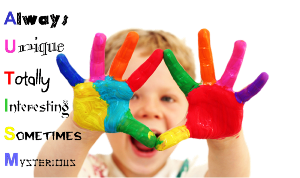Empathy
Is Autism Really an "Empathy Disorder"?
Autism may mean a lack of "shallow empathy," but not "deep empathy."
Posted May 20, 2017 Reviewed by Abigail Fagan

A few years ago, I published a blog post about empathy called "Empathy — the Ability that Makes us Truly Human." In retrospect, I wish I had given the article a different title. I had an angry comment from a person who said he was autistic and wrote: “I cannot be human. I am on the autism spectrum. Since it is empathy that makes YOU all 'truly human,' I cannot be human, since my empathy is either impaired or lacking.”
It is a common belief that people with autism lack empathy. One researcher who helped to popularize this belief was the British professor of developmental psychopathology, Simon Baron-Cohen, who saw autism as an “empathy disorder.” According to Baron-Cohen, one of the features of autism is “mind blindness,” which means that you can’t put yourself into someone else’s shoes, can’t “read” other people’s faces and body language, and so can’t tell what they are thinking or feeling. As a result, people with autism find it difficult to respond in an appropriate way in social situations. They may appear emotionless and impolite.
However, many people with autism — and their families — are confused by this belief, since they feel that they often experience and witness empathy. They sometimes say that they appear to "feel with" other people to an even greater extent than normal. A friend of mine has a young son who is on the autism spectrum, who is certainly empathic in the sense that he reacts strongly to other people’s suffering. He becomes distressed when people around him are upset, and shows happiness when they are happy.
In fact, many researchers have begun to question the assumption of a lack of empathy in autism. There have been suggestions that it isn’t empathy itself that is impaired in people with autism, but just social communication skills, or the ability to understand, describe, or express one's emotions. (1)
Shallow and Deep Empathy
So is it correct to define autism as an “empathy disorder”? The answer is that it may depend on how you define empathy. According to Simon Baron-Cohen, empathy means “reading the emotional atmosphere” and “tuning into the other person’s thoughts and feelings.” Another prominent British psychologist, Paul Gilbert, defines it as “looking through the eyes of another.” By these definitions, it may be valid to say that people diagnosed with autism lack empathy.
However, this is actually quite a limited definition of empathy. It only refers to what I call “shallow” empathy. Shallow empathy is similar to what psychologists sometimes call "cognitive empathy." It is the cognitive ability to put yourself in another person’s shoes or to gain an inkling of understanding for how they are feeling based on their behavior, facial expressions, and speech. This is the kind of empathy that is “measured” in tests where people are asked to look at pictures of faces or eyes and guess what emotion they are expressing.
But there is also what I call “deep empathy,” which is similar to what is sometimes called "affective empathy." This is the ability not just to imagine, but also to actually feel what other people are experiencing. It’s the ability to actually enter the “mind space” of another person, so that you can sense their feelings and emotions. In a sense, your identity merges with theirs. The separateness between you and them fades away. Your "self-boundary" melts away, so that in a sense — or to an extent — you become them. Deep empathy is the source of compassion and often leads to altruistic behavior, which is rooted in the desire to alleviate the suffering we can sense in others.
To some extent, these two types of empathy seem to be independent. A person can have a high level of shallow empathy and a low level of deep empathy, and vice versa. For example, a successful politician may have a high level of shallow empathy, in the sense that they can read the emotional atmosphere, know instinctively how to respond to situations or body language, and tell people what they want to hear. But they may also have a low level of deep empathy, which makes it possible for them to behave ruthlessly, by exploiting and maltreating others in order to achieve their ambitions. (Exploitative behavior is only possible if there is an absence of deep empathy, which means that you can’t sense the suffering you inflict on others.)
And it may be that for people on the autistic spectrum, this equation is reversed: They may not be good at shallow empathy—but may not at all be impaired in terms of deep empathy.
Steve Taylor, Ph.D., is a senior lecturer in psychology at Leeds Beckett University, UK.
References


